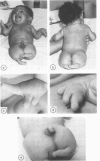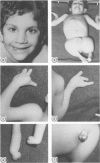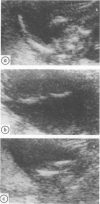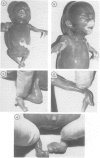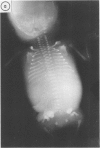Abstract
A second family with the autosomal recessive disorder now referred to as the limb/pelvis-hypoplasia/aplasia syndrome is reported. It is speculated that the gene for this rare skeletal dysplasia may be confined to the Middle East gene pool. The disorder has been shown to be diagnosable prenatally in a pregnancy at risk by using ultrasonography.
Full text
PDF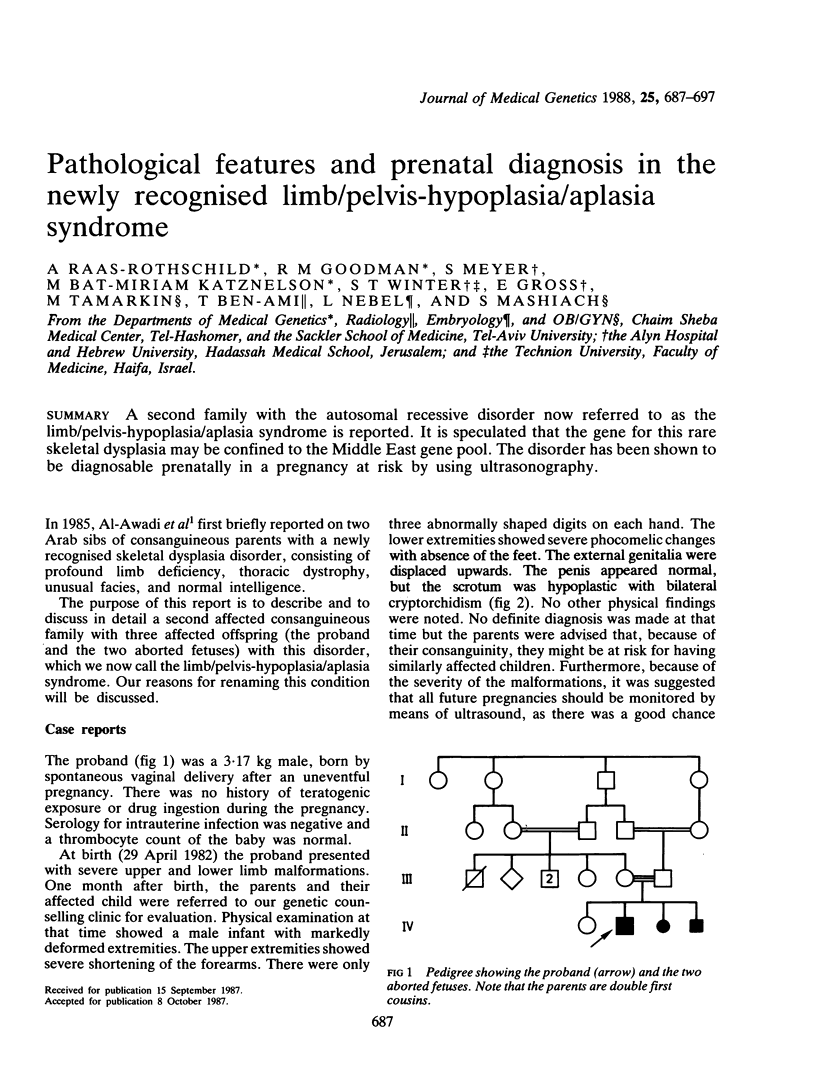
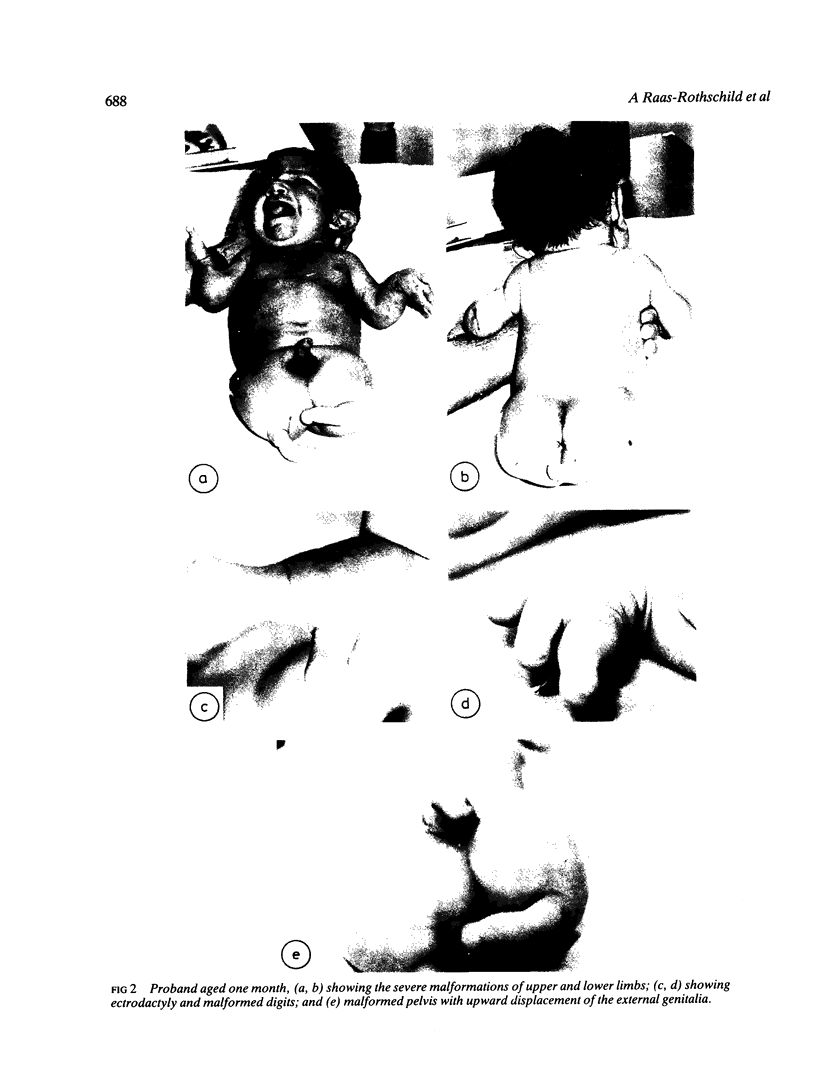
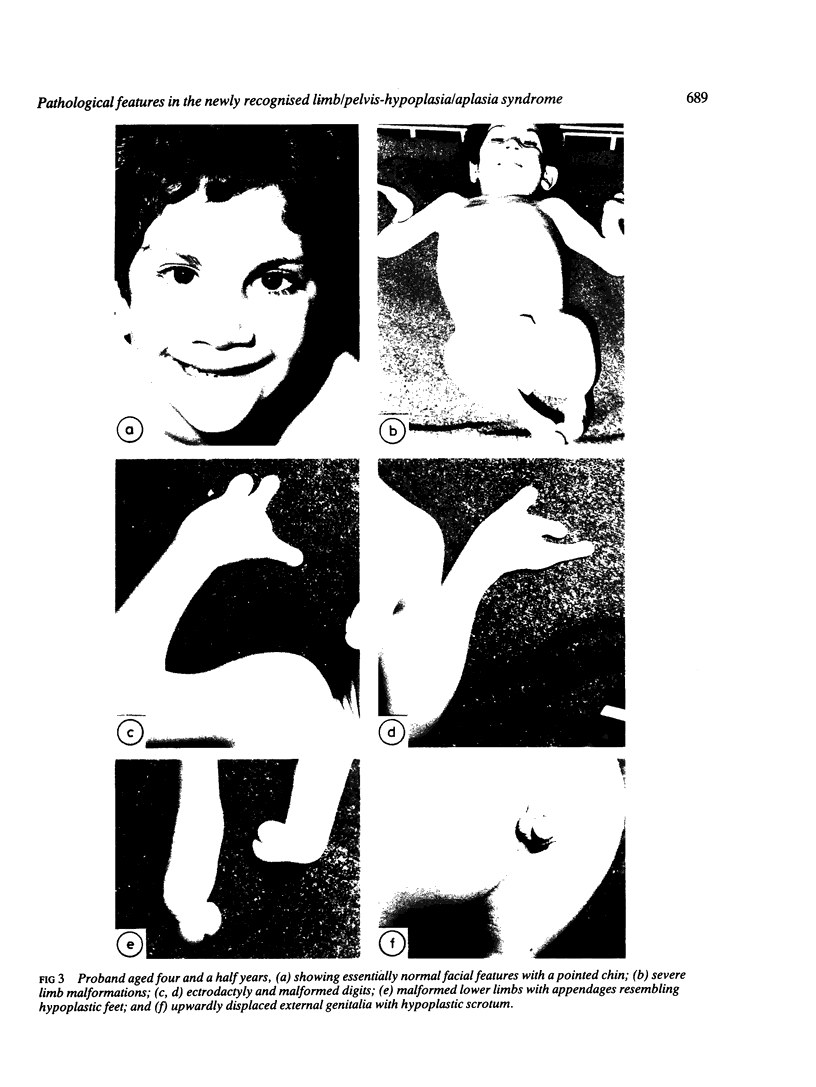
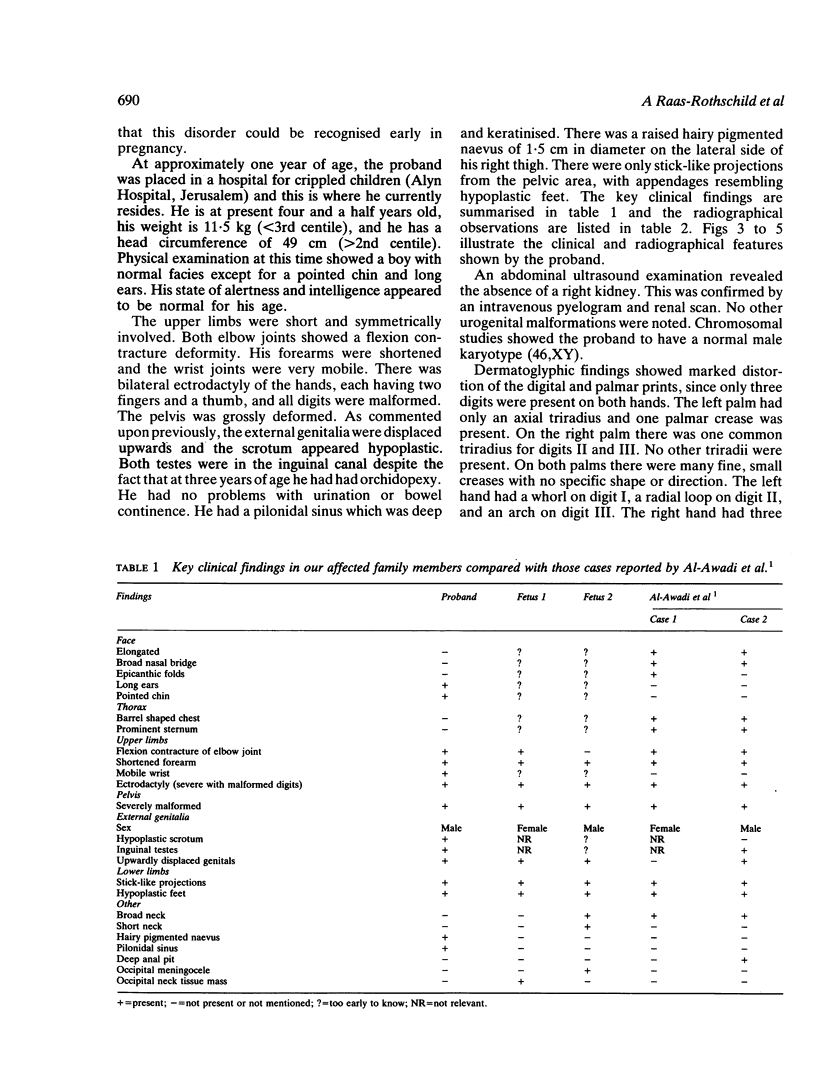
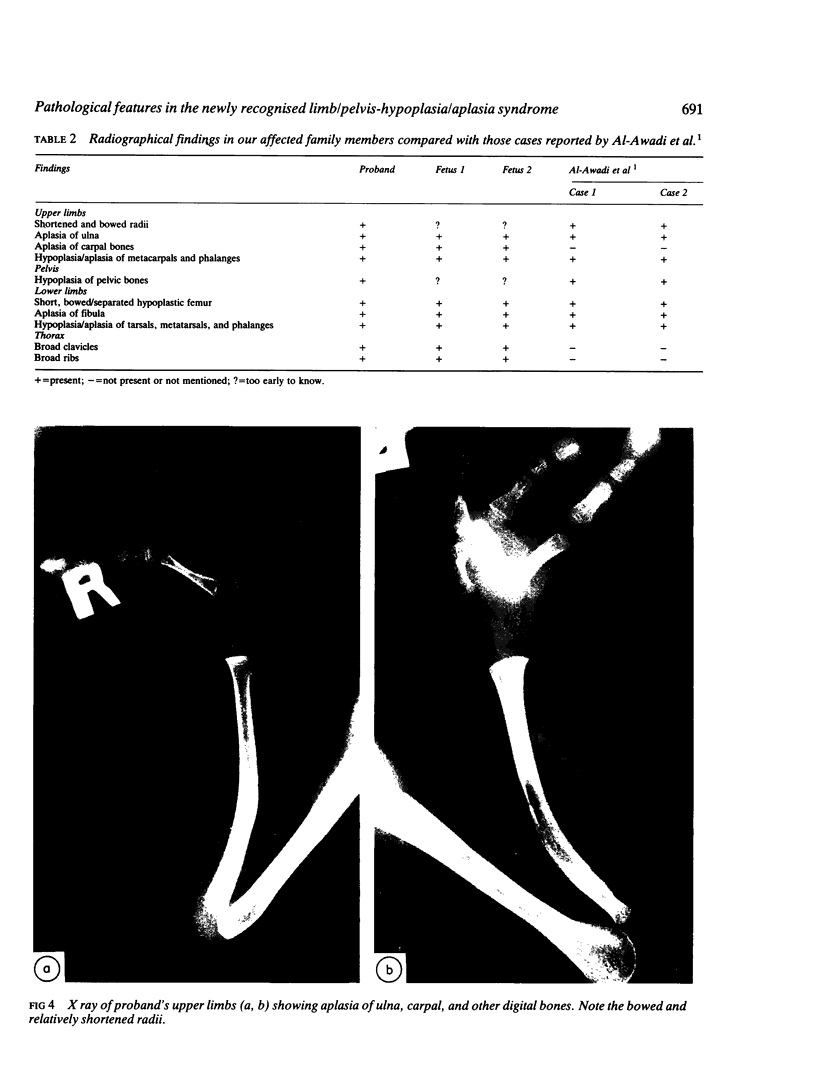
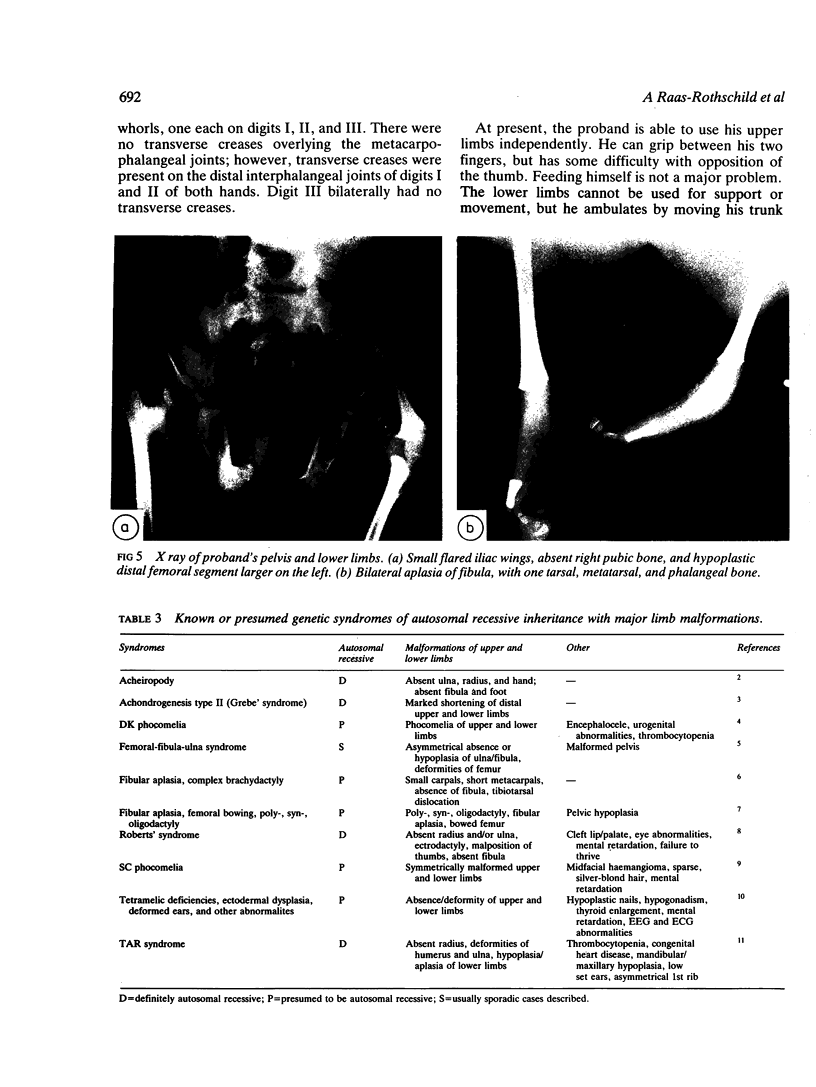
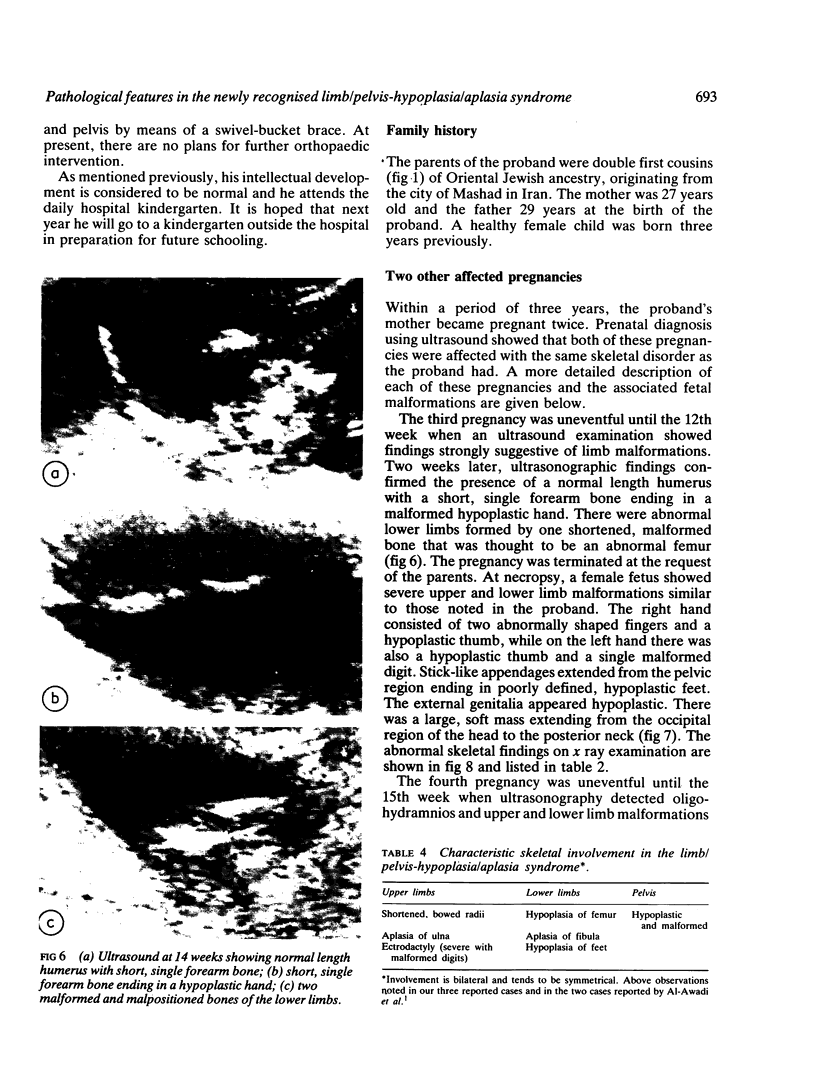
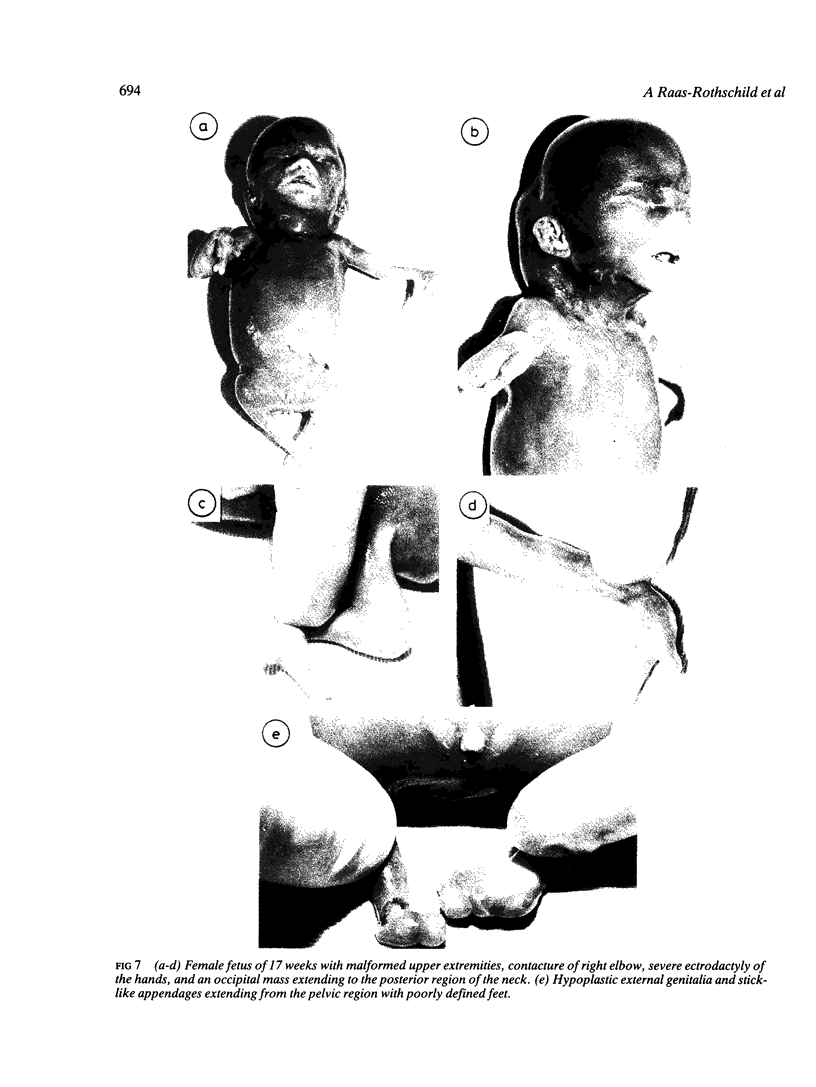
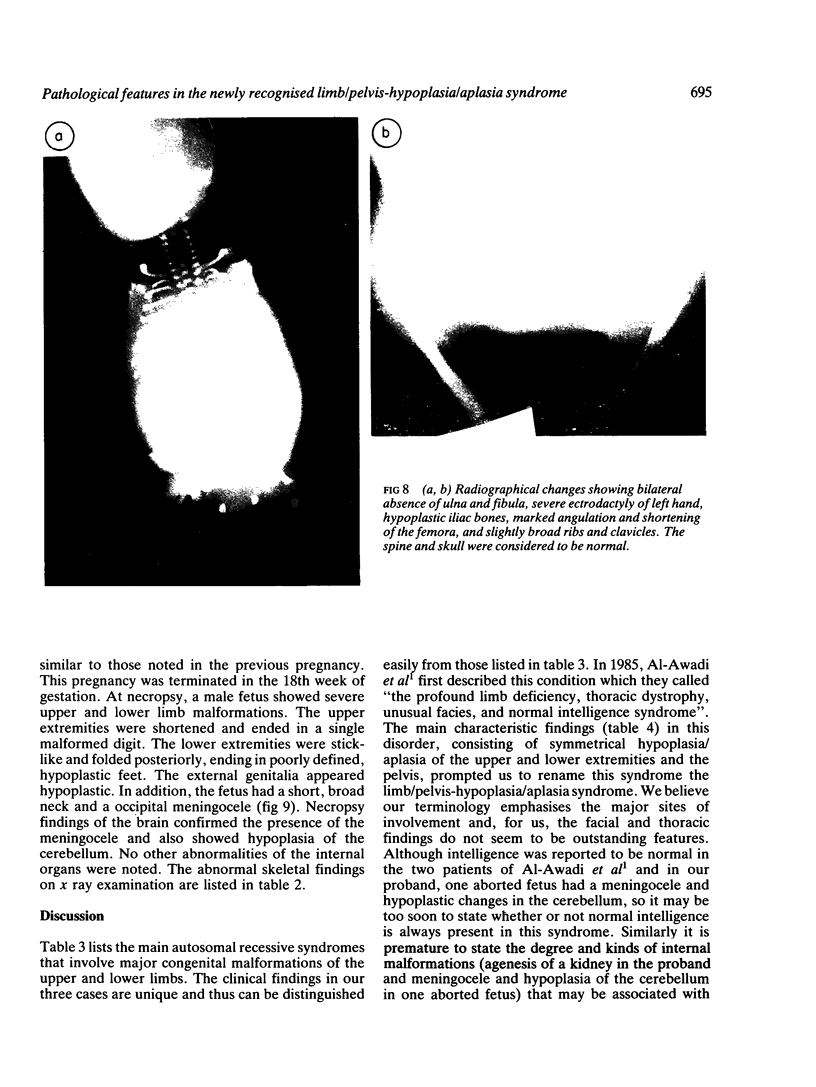
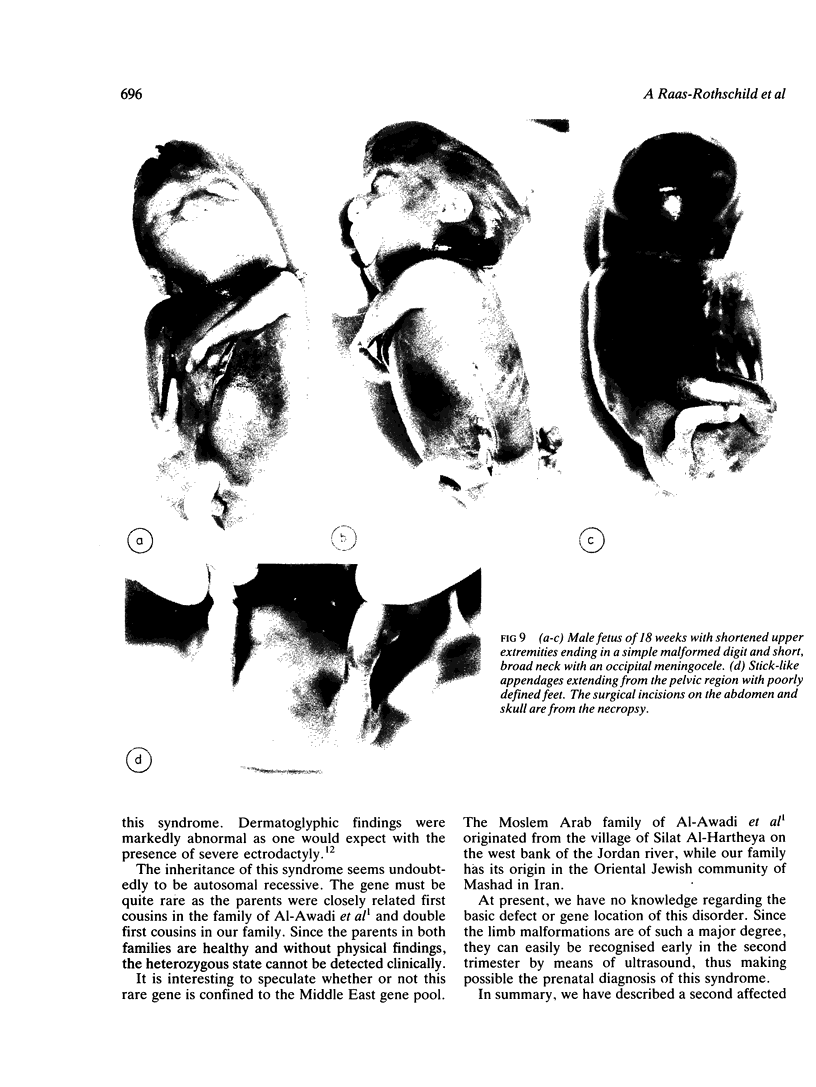
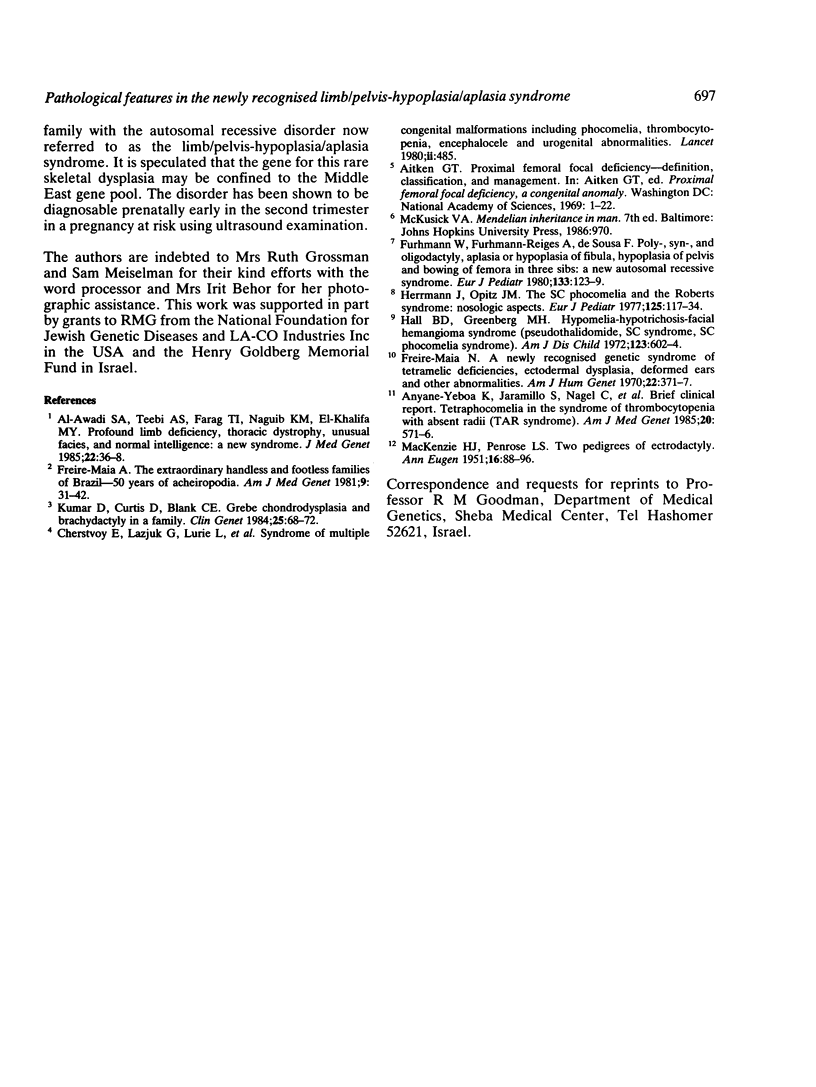
Images in this article
Selected References
These references are in PubMed. This may not be the complete list of references from this article.
- Al-Awadi S. A., Teebi A. S., Farag T. I., Naguib K. M., el-Khalifa M. Y. Profound limb deficiency, thoracic dystrophy, unusual facies, and normal intelligence: a new syndrome. J Med Genet. 1985 Feb;22(1):36–38. doi: 10.1136/jmg.22.1.36. [DOI] [PMC free article] [PubMed] [Google Scholar]
- Anyane-Yeboa K., Jaramillo S., Nagel C., Grebin B. Tetraphocomelia in the syndrome of thrombocytopenia with absent radii (TAR syndrome). Am J Med Genet. 1985 Apr;20(4):571–576. doi: 10.1002/ajmg.1320200402. [DOI] [PubMed] [Google Scholar]
- Cherstvoy E., Lazjuk G., Lurie I., Ostrovskaya T., Shved I. Syndrome of multiple congenital malformations including phocomelia, thrombocytopenia, encephalocele, and urogenital abnormalities. Lancet. 1980 Aug 30;2(8192):485–485. doi: 10.1016/s0140-6736(80)91925-x. [DOI] [PubMed] [Google Scholar]
- Freire-Maia A. Historical note: the extraordinary handless and footless families of Brazil - 50 years of acheiropodia. Am J Med Genet. 1981;9(1):31–41. doi: 10.1002/ajmg.1320090108. [DOI] [PubMed] [Google Scholar]
- Freire-Maia N. A newly recognized genetic syndrome of tetramelic deficiencies, ectodermal dysplasia, deformed ears, and other abnormalities. Am J Hum Genet. 1970 Jul;22(4):370–377. [PMC free article] [PubMed] [Google Scholar]
- Fuhrmann W., Fuhrmann-Rieger A., de Sousa F. Poly-, syn- and oligodactylyl, aplasia or hypoplasia of fibula, hypoplasia of pelvis and bowing of femora in three sibs--a new autosomal recessive syndrome. Eur J Pediatr. 1980 Mar;133(2):123–129. doi: 10.1007/BF00441580. [DOI] [PubMed] [Google Scholar]
- Hall B. D., Greenberg M. H. Hypomelia-hypotrichosis-facial hemangioma syndrome (pseudothalidomide, SC syndrome, SC phocomelia syndrome). Am J Dis Child. 1972 Jun;123(6):602–604. doi: 10.1001/archpedi.1972.02110120126020. [DOI] [PubMed] [Google Scholar]
- Herrmann J., Opitz J. M. The SC phocomelia and the Roberts syndrome: nosologic aspects. Eur J Pediatr. 1977 Jun 1;125(2):117–134. doi: 10.1007/BF00489985. [DOI] [PubMed] [Google Scholar]
- Kumar D., Curtis D., Blank C. E. Grebe chondrodysplasia and brachydactyly in a family. Clin Genet. 1984 Jan;25(1):68–72. doi: 10.1111/j.1399-0004.1984.tb00465.x. [DOI] [PubMed] [Google Scholar]



